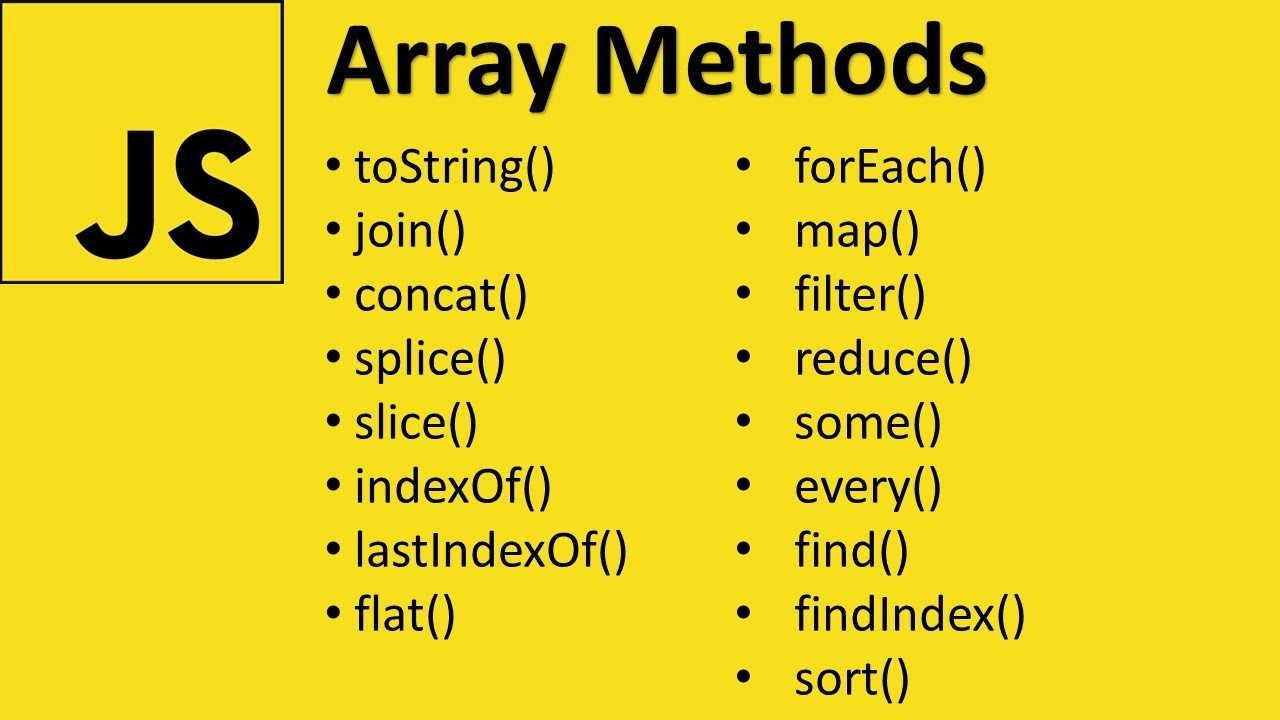JavaScript arrays are powerful data structures that allow you to store and manipulate collections of data efficiently. Understanding array methods is crucial for effectively working with arrays in JavaScript. In this article, we'll explore some of the most commonly used array methods, including their syntax, usage, and examples.
- forEach() Method:Syntax: array.forEach(callback(currentValue, index, array), thisArg)Description: Executes a provided function once for each array element.Example:const numbers = [1, 2, 3, 4, 5]; numbers.forEach((num) => console.log(num * 2));
- map() Method:Syntax: const newArray = array.map(callback(currentValue, index, array), thisArg)Description: Creates a new array populated with the results of calling a provided function on every element in the calling array.Example:const numbers = [1, 2, 3, 4, 5]; const doubledNumbers = numbers.map((num) => num * 2);
- filter() Method:Syntax: const newArray = array.filter(callback(element, index, array), thisArg)Description: Creates a new array with all elements that pass the test implemented by the provided function.Exampleconst numbers = [1, 2, 3, 4, 5]; const evenNumbers = numbers.filter((num) => num % 2 === 0);
- reduce() Method:Syntax: const result = array.reduce(callback(accumulator, currentValue, index, array), initialValue)Description: Executes a reducer function on each element of the array, resulting in a single output value.Exampleconst numbers = [1, 2, 3, 4, 5]; const sum = numbers.reduce((total, num) => total + num, 0);
- find() Method:Syntax: const result = array.find(callback(element, index, array), thisArg)Description: Returns the first element in the array that satisfies the provided testing function.Example:const numbers = [1, 2, 3, 4, 5]; const foundNumber = numbers.find((num) => num > 3);
- some() and every() Methods:Syntax:array.some(callback(element, index, array), thisArg): Returns true if at least one element in the array passes the test.array.every(callback(element, index, array), thisArg): Returns true if all elements in the array pass the test.Examples:const numbers = [1, 2, 3, 4, 5]; const hasNegative = numbers.some((num) => num < 0); const allPositive = numbers.every((num) => num > 0);
